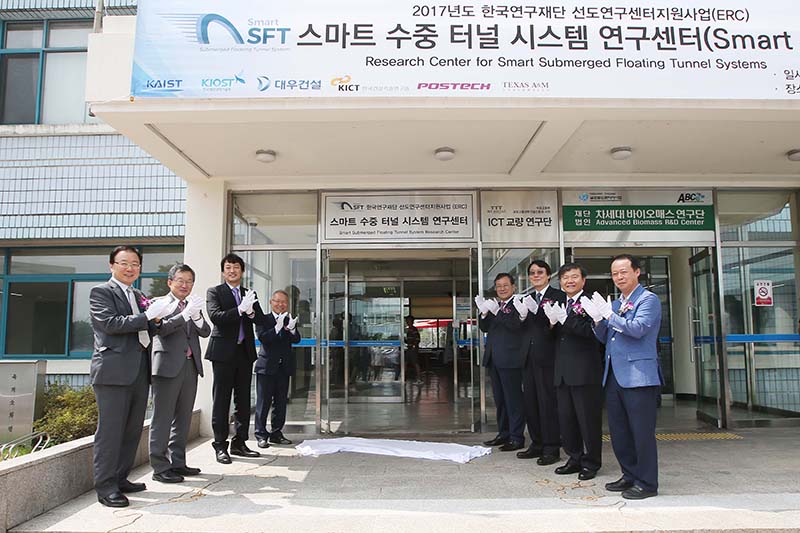On September 7, the Research Center for Smart Submerged Floating Tunnel Systems was inaugurated in KAIST. Located within the Applied Engineering Building (W1), the center is expected to take the helm in the research and development of submerged floating tunnels and related technologies. Furthermore, the center is envisioned to become a creative hub that will nurture talent in a field which, as of yet, has not yielded tangible results.
A submerged floating tunnel (SFT), also called an Archimedes bridge, is a tunnel positioned underwater in a depth such that it can avoid water traffic and weather, but in which water pressure does not become a problem. The main benefit of SFTs is that they can be constructed in exceedingly deep and vast bodies of water, where the construction of regular bridges or underground tunnels would be physically impossible or expensive. Although they have been proposed in different countries across the years, with the first proposal done in the late 1800s in England, no SFTs have been constructed so far. The first one, which will go through the Norwegian fjords, is expected to be completed by 2035.
The National Research Foundation of Korea has established a program that selects outstanding research centers and provides them with assistance to elevate their capabilities and bolster their competitiveness on a global scale. The Research Center for Smart Submerged Floating Tunnel Systems is among the selected centers, also known as Engineering Research Center (ERC) projects, for 2017. With the received aid, the center is expected to work on the development of SFTs resistant to depths greater than 100 meters for the next seven years.
To accomplish this feat, the center has highlighted three key research concerns: systems for integrated design and structural analysis; materials and systems for underwater construction; and integrated technology for safety and maintenance of the SFTs. Professor Haeng-Ki Lee of the Department of Civil and Environmental Engineering, who was selected to lead the center, said, “The center will cooperate with KAIST researchers who are experts in various fields, including structures, materials, construction, and maritime research ... It will also take the role of a leading global research hub in the field of submerged floating tunnels as well as construction technologies.”


